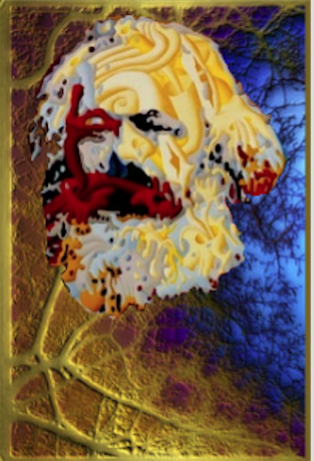
In the “German Democratic Republic” they tell the story about a weary old man who tries to gain entrance into the Red Paradise. A Communist Archangel holds him up at the gate and severely cross-questions him… Continue reading


In the “German Democratic Republic” they tell the story about a weary old man who tries to gain entrance into the Red Paradise. A Communist Archangel holds him up at the gate and severely cross-questions him… Continue reading
 Let me tell you how my story ends: I become a tenured, award-winning professor of political science at an Ivy League university, and then at one of the leading universities in the South.
Let me tell you how my story ends: I become a tenured, award-winning professor of political science at an Ivy League university, and then at one of the leading universities in the South.
Now let me tell you how my story begins: I grow up in rural Virginia, literally dirt poor.
I drop out of school in the eighth grade and have three children by the time I’m 20.
I consider myself to be a reasonably modest person, but even I have to admit that’s quite a journey.
How did I do it? Continue reading
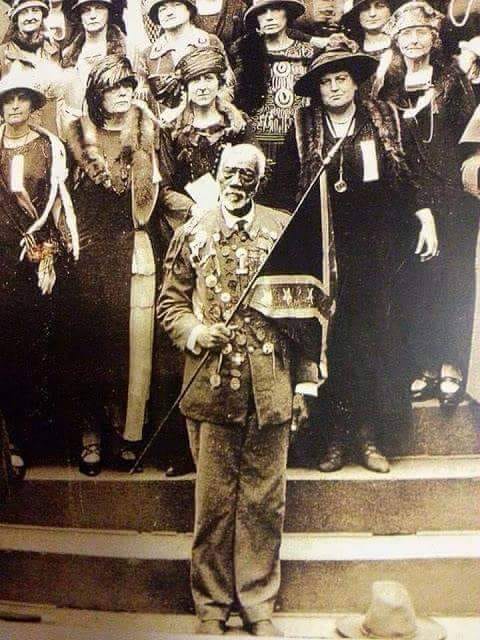
He stayed with General Lee throughout the war and until the day Lee died in 1870. Mack said of General Lee after his death “I was raised by one of the greatest men in the world. There was never one born of a woman greater than General Robert E. Lee, according to my judgment. All of his servants were set free ten years before the war, but all remained on the plantation until after the surrender.”
General Lee left Mack $360 in his will, which Mack used to go to school and started 14 churches. He became an ordained Missionary Baptist minister in Washington, DC
Paine’s Pamphlet “Common Sense” Inspired the Patriot Cause
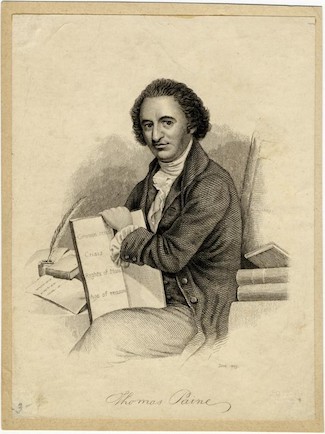
Thomas Paine was an English-born writer and political activist who became, shortly after his arrival in America, the leading propagandist of the American Revolution. His pamphlet “Common Sense,” which appeared anonymously in early 1776, became wildly popular and helped sway public opinion to the radical position of splitting from the British Empire.
Paine followed up by publishing, during the bitter winter when the Continental Army was camped at Valley Forge, a pamphlet titled “The American Crisis,” which urged Americans to remain steadfast to the patriot cause. Continue reading
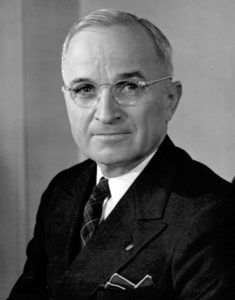 Harry Truman was a different kind of President. He probably made as many, or more important decisions regarding our nation’s history as any of the other 32 Presidents preceding him. However, a measure of his greatness may rest on what he did after he left the White House.
Harry Truman was a different kind of President. He probably made as many, or more important decisions regarding our nation’s history as any of the other 32 Presidents preceding him. However, a measure of his greatness may rest on what he did after he left the White House.
The only asset he had when he died was the house he lived in, which was in Independence, Missouri. His wife had inherited the house from her mother and father and other than their years in the White House, they lived their entire lives there.
When he retired from office in 1952 his income was a U.S. Army pension reported to have been $13,507.72 a year. Congress, noting that he was paying for his stamps and personally licking them, granted him an ‘allowance’ and later, a retroactive pension of $25,000 per year. Continue reading

Photography was in its infancy in the 1840s. These portraits date from 1860
On his first visit to America in 1842, English novelist Charles Dickens was greeted like a modern rock star. But the trip soon turned sour, as Simon Watts reports.
On Valentine’s Day, 1842, New York hosted one of the grandest events the city had ever seen – a ball in honour of the English novelist Charles Dickens. Continue reading

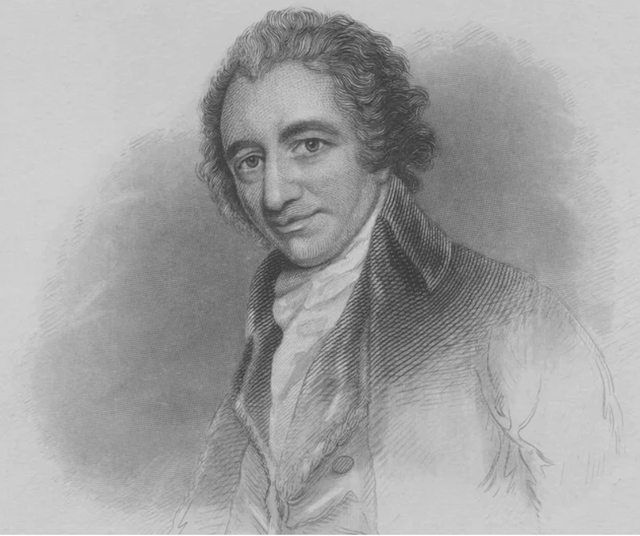
If Tom Cruise was Born on the Fourth of July, then he can thank Thomas Paine, who it can be said was born on January 10, 1776 with the publication of his incendiary essay, Common Sense, that argued for independence from England. He priced it cheaply (two shillings), argued passionately, and wrote in a direct style so that readers could understand him. Continue reading
George Washington rose to prominence on the shoulders of his dynamic half-brother Lawrence, married wisely, and was enormously popular with the soldiers of Virginia and politicians of his day. Find out more about his life in this full documentary.
The following has less to do with history or education, but a superb Profile of a very gifted actor. Do enjoy this – as I have. ~ Ed.
Behind the actor’s characters, you sensed something hard, immutable, and crystalline that belonged to him alone.
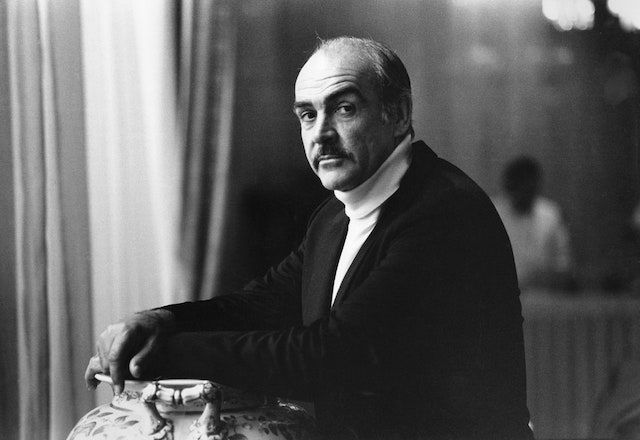
Sean Connery looking at the camera with a cigarette in his hand. Photograph by John Downing / Getty
With the passing of Sean Connery, who has died at the age of ninety, we have lost perhaps the very last movie star who was known and revered for playing himself. Continue reading
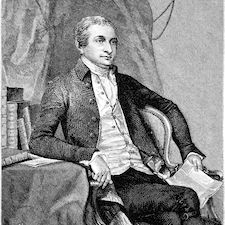 On December 12, 2017, one of America’s most prominent, yet forgotten, Founding Fathers would have turned 272 years old. John Jay, a native of New York City, had among the most impressive resumes in American history, especially among the Founding Fathers who never became president. Jay served in the Continental Congress, as a diplomat representing the United States in the Treaty of Paris, an author of the Federalist Papers, America’s first chief justice, acting secretary of state under George Washington, and governor of New York. Continue reading
On December 12, 2017, one of America’s most prominent, yet forgotten, Founding Fathers would have turned 272 years old. John Jay, a native of New York City, had among the most impressive resumes in American history, especially among the Founding Fathers who never became president. Jay served in the Continental Congress, as a diplomat representing the United States in the Treaty of Paris, an author of the Federalist Papers, America’s first chief justice, acting secretary of state under George Washington, and governor of New York. Continue reading
Publisher’s Note: I awoke Friday morning to the news that one of my boyhood hero’s had passed on to the great Field in the Heavens. I spent most of my youth during the summers where I had been born – lees than an hour from Milwaukee – sitting on the lawn in front of my Grandfather’s home – with Uncle Charlie, where we would listen to Hank, Lew, Eddie, Warren and the rest of my favorite team “play ball.” Save me a seat in the Heavenly Bleachers and I will be along soon enough Mr. Aaron. RIP ~ Jeffrey Bennett
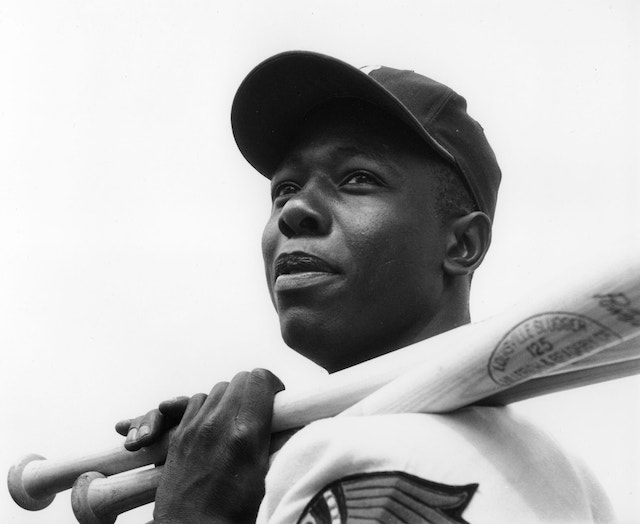
Hank Aaron was among the greatest all-around players in baseball history, earning his home run record in the face of hate mail and even death threats.Credit…Mark Rucker/Transcendental Graphics, via Getty Images
January 22, 2021 ~ Hank Aaron, who faced down racism as he eclipsed Babe Ruth as baseball’s home run king, hitting 755 homers and holding the most celebrated record in sports for more than 30 years, has died. He was 86.
Playing for 23 seasons, all but his final two years with the Braves in Milwaukee and then Atlanta, Aaron was among the greatest all-around players in baseball history and one of the last major league stars to have played in the Negro leagues. Continue reading
Walter once said he hoped that, on the day he died, he would have taught a class that day. And that is just the way it was, when he died on Wednesday, December 2, 2020. ~ Thomas Sowell
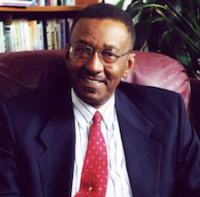
On the major social and political issues of our time, Walter Williams was one of America’s most important and provocative thinkers. He was black, yet he opposed affirmative action. He believed that the Civil Rights Act was a major error, that the minimum wage actually creates unemployment and that occupational and business licensure and industry regulation work against minorities and others in American business. Perhaps most importantly he had come to believe that it has been the welfare state that has done to black Americans what slavery could never do: destroy the black family. Walter Williams expressed all of these provocative ideas and more in this public television documentary produced by Free To Choose Network. Continue reading
 She was a new bride in the fall of 1800. Immediately following her wedding in Philadelphia Margaret Bayard Smith and her husband traveled to Washington to make a new home. He had just started the Washington Intelligencer newspaper. Mr. Smith and his newspaper supported Thomas Jefferson in his bid for the presidency in the election of 1800. After his election and throughout his eight years as President, Jefferson often invited the Smith’s to the White House or visited their home on Capitol Hill. Continue reading
She was a new bride in the fall of 1800. Immediately following her wedding in Philadelphia Margaret Bayard Smith and her husband traveled to Washington to make a new home. He had just started the Washington Intelligencer newspaper. Mr. Smith and his newspaper supported Thomas Jefferson in his bid for the presidency in the election of 1800. After his election and throughout his eight years as President, Jefferson often invited the Smith’s to the White House or visited their home on Capitol Hill. Continue reading
I awoke early on a December morning and was shortly put into a state of shock – and great sadness. It has taken me nearly thirteen days before I could bring myself to publish this tribute to a GREAT human being – by another man, who I feel as strongly about – Thomas Sowell. Both men have had a tremendous impact on my life for this past quarter-century plus. R.I.P. Mr Williams. As with music that has been left to me by many artists throughout my life, I also will be left with your wisdom through your writings. ~ Jeffrey Bennett, Publisher
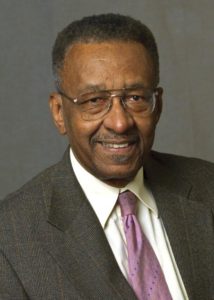
Walter E. Williams 1936-2020
Walter Williams loved teaching. Unlike too many other teachers today, he made it a point never to impose his opinions on his students. Those who read his syndicated newspaper columns know that he expressed his opinions boldly and unequivocally there. But not in the classroom.
Walter once said he hoped that, on the day he died, he would have taught a class that day. And that is just the way it was, when he died on Wednesday, December 2, 2020.
He was my best friend for half a century. There was no one I trusted more or whose integrity I respected more. Since he was younger than me, I chose him to be my literary executor, to take control of my books after I was gone.
But his death is a reminder that no one really has anything to say about such things. Continue reading
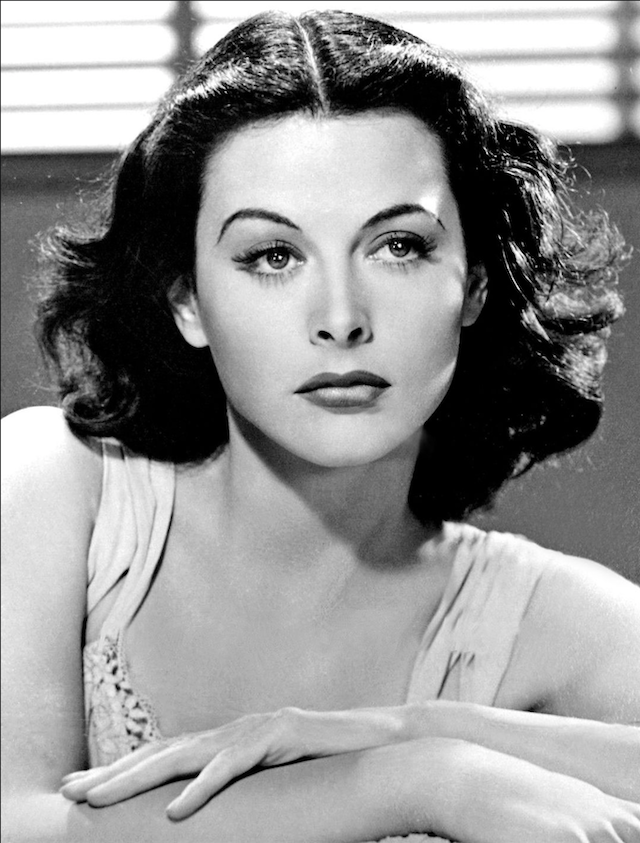
November 9, 2020 marked the 106th birthday of Hollywood actress and inventor, Hedy Lamarr (image circa 1930) was often dubbed the “most beautiful woman in the world.” But there was far more to her story, as she was also the co-inventor invented a device that helped make possible the development of GPS, Bluetooth, and Wi-Fi technology! Continue reading
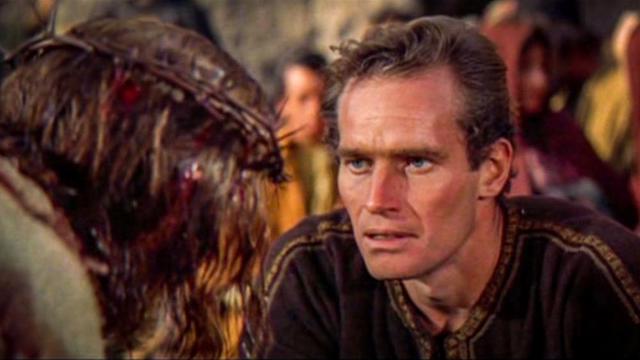 CRAWFORDSVILLE, Ind. – For many, watching the movie “Ben-Hur” has become an Easter tradition. The 1959 blockbuster, starring Charlton Heston, made history with a record 11 Academy Awards.
CRAWFORDSVILLE, Ind. – For many, watching the movie “Ben-Hur” has become an Easter tradition. The 1959 blockbuster, starring Charlton Heston, made history with a record 11 Academy Awards.
Now, the 1925 silent version is making a comeback. But what many may not know is that Hollywood didn’t create this classic story.
The idea came from the best-selling novel, Ben-Hur: A Tale of the Christ, published in 1880. The book tells the story of a life-altering encounter between a first-century Jewish prince and Jesus of Nazareth.
The author is Lew Wallace – a true renaissance man. Continue reading
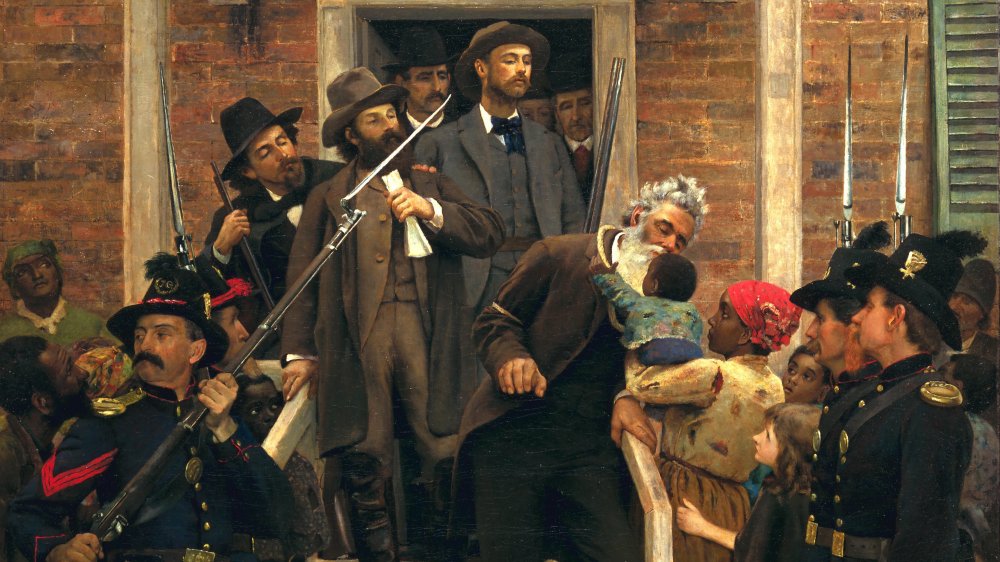
The exploits of John Brown have long fascinated historians. His actions, for better or worse, certainly had a significant effect on the country prior to Southern secession, but the fascination with Brown is largely driven by the enigma the man himself has proven to be. In trying to explain his actions and motives, historians have wrestled with questionable and biased testimonies by the people who knew him, and many of the mysteries surrounding John Brown have been explained – then and now – by mental disorders. Continue reading
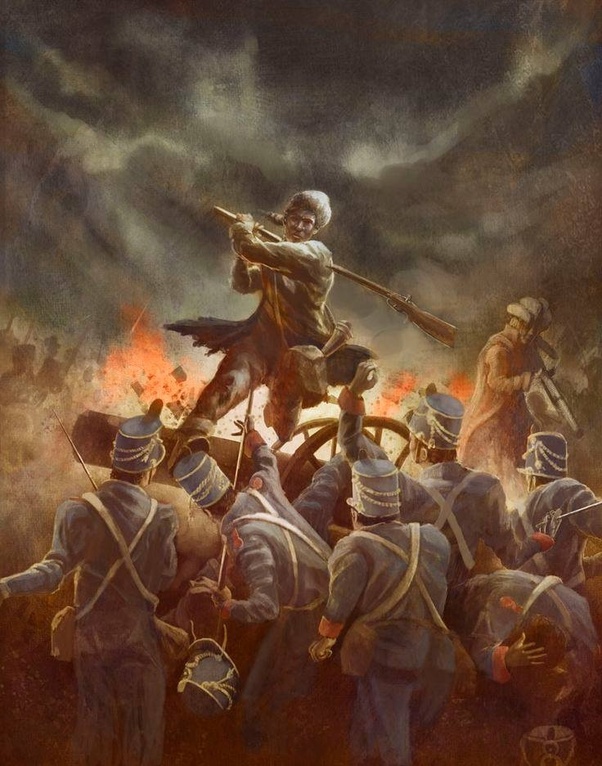
Each year around March 6, the anniversary of the 1836 Battle of the Alamo, the question arises as to how Davy Crockett died. It is not enough to know that he died. We need to know exactly how this legendary American lost his life in one of our nation’s most famous battles. Thankfully, there were eyewitnesses. Continue reading
An irrepressible son of New York City, Ford joined the pantheon of baseball legends who dominated the 1950s and ’60s.

Whitey Ford pitching batting practice at the Yankees’ spring training camp in 1971, four years after retiring. A Yankee for his entire career, he won 236 games, the most of any Yankee, and had a career winning percentage of .690. Ernie Sisto/The New York Times
Whitey Ford, the Yankees’ Hall of Fame left-hander who was celebrated as the Chairman of the Board for his stylish pitching and big-game brilliance on the ball clubs that dominated baseball in the 1950s and early ’60s, died on Thursday night at his home in Lake Success, N.Y., on Long Island. He was 91. The Yankees announced his death. Continue reading